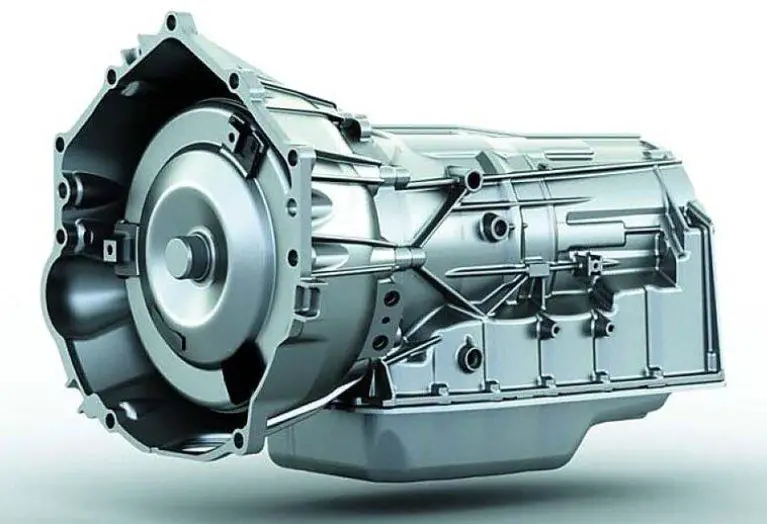F150 Ecoboost Resonator Delete Gains
Last Updated on by David Jon
In an era of sustainable automotive enhancements, understanding the potential gains associated with the F150 Ecoboost Resonator Delete is crucial. This complex procedure offers a myriad of benefits for Ford owners, DIY enthusiasts, mechanics, and Ford maintenance aficionados alike. Realizing this, we’ve synthesized key insights into this process, outlining the palpable improvements and outlining the efficiency it brings. Peerless in design, the F150 Ecoboost Resonator Delete bestows not only less restrictive airflow but also maximizes horsepower, fuel efficiency, and overall vehicle performance. It’s a topic worth exploring for those looking to elevate their Ford experience.

Overview of F150 Ecoboost Resonator Delete Gains
We will commence with an understanding of the basic concept behind doing an F150 Ecoboost resonator delete, familiarizing ourselves with its essential aspects. The resonator is an integral component of a car’s exhaust system, which helps in reducing noise and facilitating optimal performance. Removing the resonator, typically to improve sound and performance, is what’s referred to as a resonator delete.
The implications of a resonator delete on a vehicle’s performance, specifically an F150 Ecoboost, are manifold. In many cases, it can provide performance benefits, including a more powerful and aggressive exhaust note, potential horsepower gains, and a reduction in vehicle weight. However, it’s crucial to bear in mind that this is a modification that should be done cautiously, considering a number of factors, particularly the potential impact on the car’s compliance with local noise laws and its warranty.
The Purpose and Function of a Resonator
To fully comprehend what a resonator delete entails, we need to understand the role of a resonator in a vehicle’s exhaust system. Primarily, a resonator’s purpose is to attenuate the sound waves produced by the engine’s exhaust gases. It achieves this by creating constructive and destructive interference – in layman’s terms, it deflects certain sound waves so they cancel each other out.
A resonator affects the engine’s performance in a variety of ways, mainly through sound management, but it also has an impact on engine backpressure. While the sound controlling properties are more noticeable to the average driver, slight changes in backpressure can affect engine performance subtly.
Benefits of Deleting the Resonator on Your F150 Ecoboost
Deleting the resonator from your F150 Ecoboost can result in some noticeable advantages. Firstly, the vehicle’s exhaust sound is enhanced, leading to a more aggressive, louder, and throatier exhaust note – music to the ears of enthusiast drivers who prefer this kind of aural feedback from their vehicle.
Secondly, potential performance gains may be realized. Removing the resonator can improve the engine’s efficiency, possibly leading to an increase in horsepower. Lastly, a resonator delete can contribute to a reduction in vehicle weight. While the weight difference might be insignificant for everyday driving, in motorsports, every ounce counts toward performance gains.

How to Perform an F150 Ecoboost Resonator Delete
Carrying out a resonator delete on your F150 Ecoboost involves taking precautions and specific steps. The required tools and materials typically include a pipe cutter, flanged piping of the correct diameter, stainless steel exhaust clamps, and protective gloves and eyewear.
When performing the resonator delete, it’s important to correctly locate the resonator and remove it without damaging any adjacent components. An appropriate length of flanged piping will then be installed in its place. However, we must emphasize the importance of safety when handling power tools and working beneath a vehicle.
The Performance Impact of a Resonator Delete
When completed successfully, a resonator delete can have a variety of impacts on your vehicle’s performance. You may notice slight performance gains, which become noticeable through an increase in the acceleration capabilities of your vehicle. The fuel economy implications will depend on the specific characteristics of your vehicle and driving habits, while the effect on a vehicle’s power and torque delivery could be nominal but potentially noticeable under various driving conditions.
Potential Drawbacks of a Resonator Delete
Despite its benefits, a resonator delete can have potential drawbacks. The most notable is a significant increase in noise levels, which might make the vehicle unpleasantly loud for some individuals, or potentially non-compliant with local noise regulations.
Furthermore, carrying out such a modification could have potential legal implications as it alters the original emission system of the vehicle, making it essential to check local laws before making the modification. Also, performing a resonator delete might affect your vehicle’s warranty, so knowing the terms of your vehicle warranty is necessary before proceeding.
Comparing F150 Ecoboost with and without Resonator
When comparing an F150 Ecoboost with its resonator intact against one without, there can be differences in performance, sound profiles, and fuel efficiency. The performance comparisons might be subtle for everyday driving, but more noticeable for those passionate about their vehicles.
The sound profile, on the other hand, could be drastically different, with the resonator delete version sounding much louder and aggressive. Fuel efficiency would be the most variable aspect, depending on various interplaying factors, such as the driving style and the general condition of the engine.
Instances of F150 Ecoboost Resonator Delete Gains
Numerous case studies illustrate resonator delete gains. Many proud Ford owners and mechanics who have performed this modification report noticeable improvements in exhaust sound quality and mild performance gains. These personal experiences and testimonials provide valuable insights into the potential benefits and drawbacks associated with resonator deletes.
Key Takeaways for Ford Owners Considering a Resonator Delete
In summarizing the benefits and drawbacks associated with a resonator delete, there seems to be a fair balance of potentials. If your priority lies in increasing the assertiveness of your F150 Ecoboosts’ exhaust note and if you don’t mind the dramatic increase in volume, then going ahead with the resonator delete could be worthwhile.
However, consideration should be given to potential legal implications, impact on your vehicle warranty, and the effects on neighbors due to increased noise levels. Finally, advice for those considering a resonator delete would be to thoroughly research and consult with professionals before going ahead with it.
Resonator Delete and Other Performance Enhancements
At the end of it all, a resonator delete isn’t the only way of modifying your vehicle for performance enhancement. There are myriad other mods available, each offering its unique set of advantages and considerations. A resonator delete could be complemented with other performance modifications to deliver even greater improvements, but it’s vital to understand that results will vary depending on the specific setup and modification combination.
Car modifications like a resonator delete are a matter of individual taste and priorities. The key is to know what you want, carry out the necessary research and, if necessary, consult with experts before jumping in – be it a resonator delete or any other modification. Only through this careful consideration can you ensure optimal results, satisfying your desire for that improved performance and sound.




